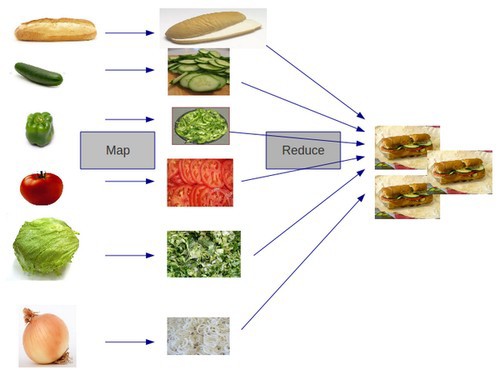Types As Theorems
The Refined Type ...
\[\reft{v}{b}{P}\]
... corresponds to the Theorem
\[\mathit{P}\]
Types as Theorems: Example
The Refined Type ...
... corresponds to the Theorem
\[1 + 1 = 2\]
Programs As Proofs: Example
The Program ...
... corresponds to a Proof that
\[1 + 1 = 2\]
Types As Theorems
The Refined Type ...
\[\bindx{n}{\Nat} \rightarrow \reft{v}{b}{P(n)}\]
... corresponds to the Theorem
\[\forall n \in \Nat.\ P(n)\]
Types as Theorems: Example
The Refined Type ...
... corresponds to the Theorem
\[\forall n, m.\ n + m = m + n\]
Programs As Proofs: Example
The Program ...
... corresponds to a Proof that
\[\forall n, m.\ n + m = m + n\]
Types as Theorems, Programs as Proofs
| Code | Math | |
|---|---|---|
| Types | are | Theorems |
| Programs | are | Proofs |
Those Proofs were Boring
Simple Arithmetic
Automatically proved by SMT Solver
Those Proofs were Boring
Simple Arithmetic
Automatically proved by SMT Solver
How about proofs about user-defined functions?
Beyond automatic SMT, but the user can write proofs
Theorems about Functions
How can we prove the the theorems
\(\mathit{sum}(1) = 1\),
\(\mathit{sum}(2) = 3\),
\(\mathit{sum}(3) = 6\).
Refinement Reflection
The annotation
Automatically gives sum the type
sum :: n:Int -> {v:Int | v = if n == 0 then 0 else n + sum (n-1)}
Reflect Function into Output Type
The type of sum connects implementation and specification
sum :: n:Int -> {v:Int | v = if n == 0 then 0 else n + sum (n-1)}
Reflect Function into Output Type
The type of sum connects implementation and specification
sum :: n:Int -> {v:Int | v = if n == 0 then 0 else n + sum (n-1)}
Key Idea
Calling sum n reveals definition at n to refinement logic!
Reflection at Result Type
Key Idea
Calling sum n reveals definition at n to refinement logic!
Structuring Proofs as Calculations
Using combinators from ProofCombinators!
Types as Theorems, Programs as Proofs
| Code | Math | |
|---|---|---|
| Types | are | Theorems |
| Programs | are | Proofs |
Reusing Proofs: Functions as Lemmas
Proofs are functions
Reusing Proofs: Functions as Lemmas
Proofs are functions
Reuse by calling the function
Reusing Proofs: Functions as Lemmas
Proofs are functions
Reuse by calling the function
? is a library operator (read ``because'')
Types as Theorems, Programs as Proofs
| Code | Math | |
|---|---|---|
| Types | are | Theorems |
| Programs | are | Proofs |
Types as Theorems, Programs as Proofs
| Code | Math | |
|---|---|---|
| Types | are | Theorems |
| Programs | are | Proofs |
| Functions | are | Lemmas |
Proof by Logical Evaluation
Long chains of calculations are tedious
Proof by Logical Evaluation
Long chains of calculations are tedious
Make the machine do the hard work!
A new algorithm to emulate computation in SMT logic
Proof by Logical Evaluation
Long chains of calculations are tedious
Make the machine do the hard work!
A new algorithm to emulate computation in SMT logic
Proof by Induction
Lets prove the theorem
\[\forall n.\ \sum_{i = 0}^n i = \frac{n \times (n + 1)}{2}\]
Proof by Induction
Lets prove the theorem
\[\forall n.\ \sum_{i = 0}^n i = \frac{n \times (n + 1)}{2}\]
that is
\[\forall n \in \Nat.\ 2 \times \mathit{sum}(n) = n \times (n + 1)\]
Proof by Induction
\[\forall n \in \Nat.\ 2 \times \mathit{sum}(n) = n \times (n + 1)\]
Q: What happens if we use the wrong induction?
Types as Theorems, Programs as Proofs
| Code | Math | |
|---|---|---|
| Types | are | Theorems |
| Programs | are | Proofs |
| Functions | are | Lemmas |
Types as Theorems, Programs as Proofs
| Code | Math | |
|---|---|---|
| Types | are | Theorems |
| Programs | are | Proofs |
| Functions | are | Lemmas |
| Branches | are | Case-Splits |
Types as Theorems, Programs as Proofs
| Code | Math | |
|---|---|---|
| Types | are | Theorems |
| Programs | are | Proofs |
| Functions | are | Lemmas |
| Branches | are | Case-Splits |
| Recursion | is | Induction |
Theorems about Data
Recall the list append function:
Lets prove that the operator is associative
Theorems about Data: Associativity of append
Lets write fill in a calculational proof:
Case Study: MapReduce
Chunk inputs, Map operation in parallel, and Reduce the results.
Case Study: MapReduce
Chunk inputs, Map operation in parallel, and Reduce the results.

Reduce Theorem
Description
If op is associative then reduce op xs == parallelReduce op xs
Theorem
reduceTheorem
:: op:(a -> a -> a) -- for any op-erator
-> xs:[a] -- for any collection xs
-> Assoc op -- if op is associative
-> {reduce op xs = parReduce op xs} -- then parReduce is ok!
Types as Theorems, Programs as Proofs
| Code | Math | |
|---|---|---|
| Types | are | Theorems |
| Programs | are | Proofs |
| Functions | are | Lemmas |
| Branches | are | Case-Splits |
| Recursion | is | Induction |
